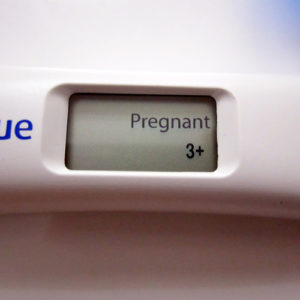So you think you are finally in the phase of life where you are ready to have children of your own? You have been trying to conceive for a long time now but with no success and it is getting irritating for you. We understand the struggle because it is real and it is heartbreaking. During all the heart-shattering pregnancy test results, did you step on a weighing scale? Because there are high chances that the problem lies not within you but with the reading of the scale. Too high or too low, both have their downsides and cause a problem with fertility.
While it’s normal for conception to take time, major weight fluctuations can disrupt your hormonal balance and fertility cycles. Aiming for a healthy BMI range between 18.5-24.9 is ideal. Don’t obsess over the number, but make sustainable lifestyle changes to reach and maintain a weight that helps optimize your chances of getting pregnant.
How to Tell If You Are Underweight or Overweight?
So, how do you tell that the number on the weighing scale which category does it put you in? Are you overweight or underweight? Well, one of the most common ways to find this out is to measure your body’s BMI. It is a clear indicator of your exact situation. You can always find help online with the BMI charts to identify your score and where it puts you. A BMI over 25 makes you an overweight and above 30, an obese. For underweight, you need to have a BMI of under 18.5.
Effects on Fertility When You Are Overweight
Being overweight means having a BMI over 25. The fat deposits in the body increase the oestrogen levels which can alter the ovulation cycles in women. This is not the end of it. Women who are obese face a lot of difficulty in conceiving and even having a healthy pregnancy. The chances of pre-eclampsia in overweight women are very high which put a great risk to the health of the mother and baby. Apart from this, a lot of fertility related problems are associated with being overweight, PCOS and endocrine disorder being the most common of all. Obesity and overweight make it overly difficult to conceive and can affect the fertility to a large extent.
Effects on Fertility When You Are Underweight
Being underweight means that your body is not getting the nutrition it needs in order to have the strength to conceive. It also tampers with the hormonal levels in blood streams and imbalances the optimal levels that are needed in order to be fertile. The biggest impact of being undernourished is on the ovulation cycle. It can not only fluctuate the ovulation cycle but can also stop it altogether. It was estimated that underweight women may take as long as a year more than women with healthy body weight to conceive. What is even worse is that the chances of them having a miscarriage are high as well.
BMI and Fertility Treatment
The subject of body weight and access to fertility treatment is a hotly debated one. Specifically the issue is related to BMI and your ability to get pregnant. Some women have been told that their BMI is too high for IVF and have been denied treatment on the NHS for fertility issues. Controversially, the NHS regularly turns away couple on the basis of their BMI. This is in the face of an ongoing discussion as to whether BMI is an accurate indicator of health.

Staying fit and healthy will help you on your pregnancy journey
Keeping A Healthy Body Weight
Maintaining a healthy body weight is extremely important especially if you want to have a healthy pregnancy and want to reduce the impact of your weight on your fertility. Being overweight or obese can negatively affect hormone levels and ovulation, while being underweight can lead to irregular periods and reduced fertility. Aim to keep your BMI between 18.5-24.9 for optimal fertility chances.
Regular exercise can help with fertility too. It can also help protect your children from obesity in later life.
Diet plays a huge role in maintaining a healthy weight. Focus on eating a balanced, nutritious diet full of lean proteins, healthy fats, complex carbohydrates, and plenty of fruits and vegetables. Limit processed foods, sugary drinks and snacks, saturated fats, and excess sodium. Drink plenty of water and get enough fibre to support healthy digestion. Consider working with a nutritionist or registered dietitian to develop a personalised eating plan that supports your fertility and weight goals.
Incorporating regular exercise into your routine is also key for weight management and fertility support. Aim for 150-300 minutes of moderate intensity activity per week. This could include brisk walking, swimming, cycling, strength training and more. If new to exercise, start slow and focus on consistency rather than intensity at first. Any movement is better than none when trying to improve fertility outcomes. Exercise helps regulate hormones, improves insulin sensitivity, reduces inflammation, and more.
Beyond supporting fertility and pregnancy, maintaining a healthy weight has lifelong impacts for you and potential future children. Children born to mothers who are overweight or obese have a higher risk of also developing weight issues and chronic health problems like diabetes and heart disease later in life. Modelling healthy eating and exercise habits can help protect children from obesity before unhealthy patterns develop. This has intergenerational effects.
There are many strategies that can facilitate weight loss or maintenance on your fertility journey. Portion control, meal prepping, substituting unhealthy foods for nutritious options, and reducing stress through meditation, yoga or support groups can all help. Consider seeking guidance from a registered dietitian, personal trainer, therapist or support group to develop a customised plan. Having accountability and support systems in place improves success rates with lifestyle changes dramatically.
Remember that the journey to get or stay at a healthy fertility-supporting weight does not happen overnight. There will be ups and downs along the way. The key is to practice self-compassion, stick to small manageable goals that build healthy habits over time, and be patient with yourself. Over a period of months, the small changes start to add up to big results. Even losing 5-10 percent of your body weight or increasing exercise capacity gradually can boost hormones, ovulation and conception chances.
Focus on overall wellbeing rather than just numbers on the scale. Track measurements, energy levels, sleep quality, menstrual cycle regularity and other non-scale victories as markers of success too. Numbers fluctuate daily but consistency with healthy habits leads to better health outcomes. Celebrate all progress made, no matter how small. Stay motivated by keeping your “why” front and center – whether that be visualising holding your future baby or recalling why you embarked on this lifestyle change journey to begin with.
When it comes to fertility and conception, maintaining a healthy body weight matters. But so does managing stress, getting quality sleep, avoiding toxins, and more. Try not to get too fixated solely on weight. Find support and be patient on the path toward improved health for you and your future family. Consistency with self-care yields the greatest rewards when trying to conceive. You’ve got this!
Photo credit: “Sad” by Anthony Cunningham for Zoom Baby
Zoom Baby is a leading supplier of Pregnancy Tests and Ovulation Test Kits





